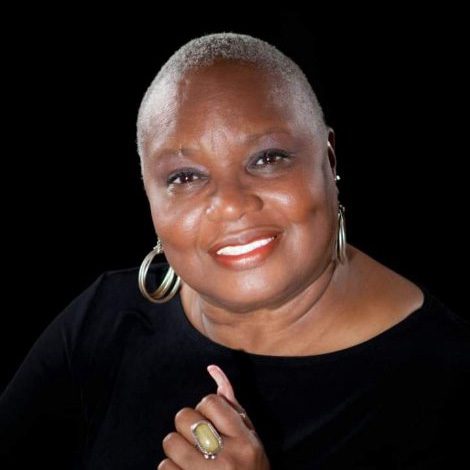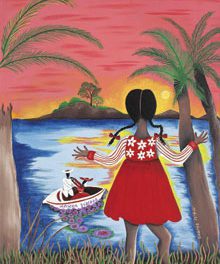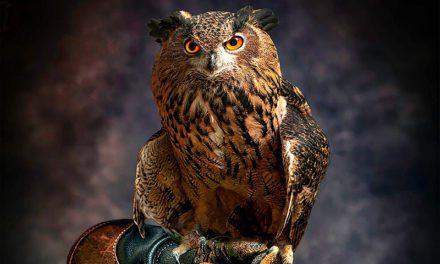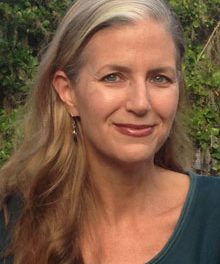Marlena Smalls arrives for our interview wearing a purple tee-shirt that reads “Roth High School 50th Class Reunion: 1966 – 2016.” With her cropped platinum hair, gold hoops, red lipstick, and enormous personality, she still manages to out-dazzle anybody I know. She always has.
And for over three decades, that light she shines has illuminated the history and culture of the Gullah people for all the world to see. And
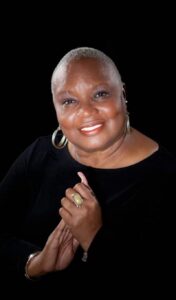
Dr. Marlena Smalls
I mean all the world. For 33 years, Marlena’s Hallelujah Singers have literally crossed the globe educating, entertaining and – perhaps most importantly – spreading love.
They will continue to do these things well into the future, but Marlena won’t be with them. Not on stage, anyway. In 2024, Marlena Smalls is officially retiring. It’s almost impossible to imagine.
She’s been here in the Lowcountry since the early 80s, when she moved from Dayton, OH to make a new life for herself and her six
children following a divorce. For a while, they slept on her sister’s living room floor, and life was a real struggle. Though her parents were South Carolina natives, Marlena had been raised in Ohio and had no professional connections here.
That didn’t stop her from landing a plum job as the Arts Coordinator for the City of Beaufort.
While in that position, the gifted vocalist who’d studied voice in college began traveling around the sea islands collecting Gullah music. She told herself she was doing it for her job, but she was really doing it for herself.
“I was learning who I was,” she says. “Learning about my culture. There was so much I didn’t know. I knew that my mother grew up in Honea Path, SC, and that her father was mixed. I knew my grandmother had Indian in her and was black as night. I knew she always had rice on the stove, but I didn’t know why. I knew she wore beads and bracelets and a medicine bag around her neck, but again, I didn’t know why.”
While Marlena was learning more about her Carolina roots, she met and married a man by the name of Smalls. The marriage didn’t last, but the name stuck, and it suits her. Around here, if your name is Smalls, chances are you’re doing big things.
For example… founding the Beaufort Gullah Festival.
“That was my brainchild,” Marlena tells me. “I was trying to raise money to put on a program for the kids at the city gym.”
It was 1985, and Marlena had already become Governor Dick Riley’s go-to vocalist when he hosted visiting governors and other dignitaries. She called his office and told them about her idea for a festival to raise money.
“Gov. Riley ended up getting us $45,000,” she says. The first Gullah Festival graced Waterfront Park that year.
A few years later, Marlena mounted a performance based on the life of Mahalia Jackson, with a cast of 60 – most of them kids. The USCB auditorium was packed.
“White, Black, Jews, Gentiles, whatever . . . It was huge,” she says. “It caught the eye of Harriet Keyserling. She called me the next day and asked me over for tea. ‘Marlena, how in the world did you get all those people in there?’ she asked. She was talking about the audience. The representation. Rich, poor, black, white, etc… I told her, ‘That’s easy. KIDS.’”
Keyserling asked Marlena if she could do something on Gullah. “That’s when I wrote ‘Church,’ ‘Nothin’ but the Blues,’ and ‘Going Home.’”
The Hallelujah Singers were born.
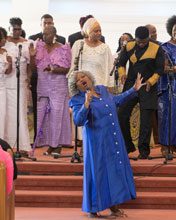
Marlena Smalls & The Hallelujah Singers
It was 1990. As a state legislator, Keyserling had connections with the National Endowment for the Arts, the South Carolina Arts Commission, and lots of other grant-making organizations. “Harriet really got us started,” says Marlena. “After that, the Arts Commission created a series for us. A six-week series in the fall – when people were coming in for the tour of homes.”
But the Hallelujah Singers wouldn’t stay local for long. Almost immediately, they began performing around the Southeast, and soon thereafter, they were traveling the country.
“Soon enough, we were going to Spain, France, England, Portugal – two or three times a year, at least,” says Marlena. “I even took Gullah to Japan. From that, I ended up doing PBS, the BBC and NPR.”
And she hasn’t stopped since. Former Penn Center director Emory Campbell once told Marlena, “Girl, you took us all over the world.” Indeed, she did.
With an honorary doctorate from the University of South Carolina, Dr. Smalls thinks of herself as a teacher first and an entertainer second. She does NOT think of herself as a preacher.
“Gullah is not gospel,” she tells me. I ask her to elaborate.
“You can feel these songs, but we’re not trying to save anybody.”
Classic Marlena. Among her many talents, the woman is seriously funny.
So what’s next for this local/international treasure? How does she plan to spend her time in retirement?
“I want to talk to people about diversity, and how to love and forgive,” she tells me. “It’s not that hard. If there was anything my parents gave me, they gave me that. I’d like to talk to women, especially, because we’re the first teachers. And a lot of the hate comes from us. I would love to talk to women over coffee, where we can really just be honest.”
Coffee Talk with Marlena? About love and forgiveness? Sign me up!
We both agree that our country is in trouble, but Marlena has very little patience for pessimism or victim mentality. In fact, I’d call her a clear-eyed American patriot.
“We’re so caught up in what we hear on the news,” she says, “but take it from a simple woman like myself, a black woman with six kids. America allows you to do anything that you want to do. It does not guarantee you that it’s going to be easy, but if you have the guts and the stamina and the knowledge to work toward your dream, in America, you can do it. No matter who you are.”
I’d say she’s living proof.
BEFORE HER FINAL BOW
There are several opportunities to see Marlena Smalls in action before she retires.
10/22, Community Sing – featuring the Hallelujah Singers and the choirs from Tabernacle Baptist and Carteret Street Methodist, with guest musicians. Carteret Street Methodist Church, 408 Carteret Street, Beaufort. 3pm. Admission is free, donations accepted.
11/23, Gullah Christmas, Thanksgiving Evening at 5pm. Tabernacle Baptist Church, 901 Craven Street, Beaufort. 5pm. Admission is free.
2/20/24, Beaufort International Film Festival Opening Night Performance, What happened to Bubba’s Mama? She opened a blues club! (More information in future issues.)

